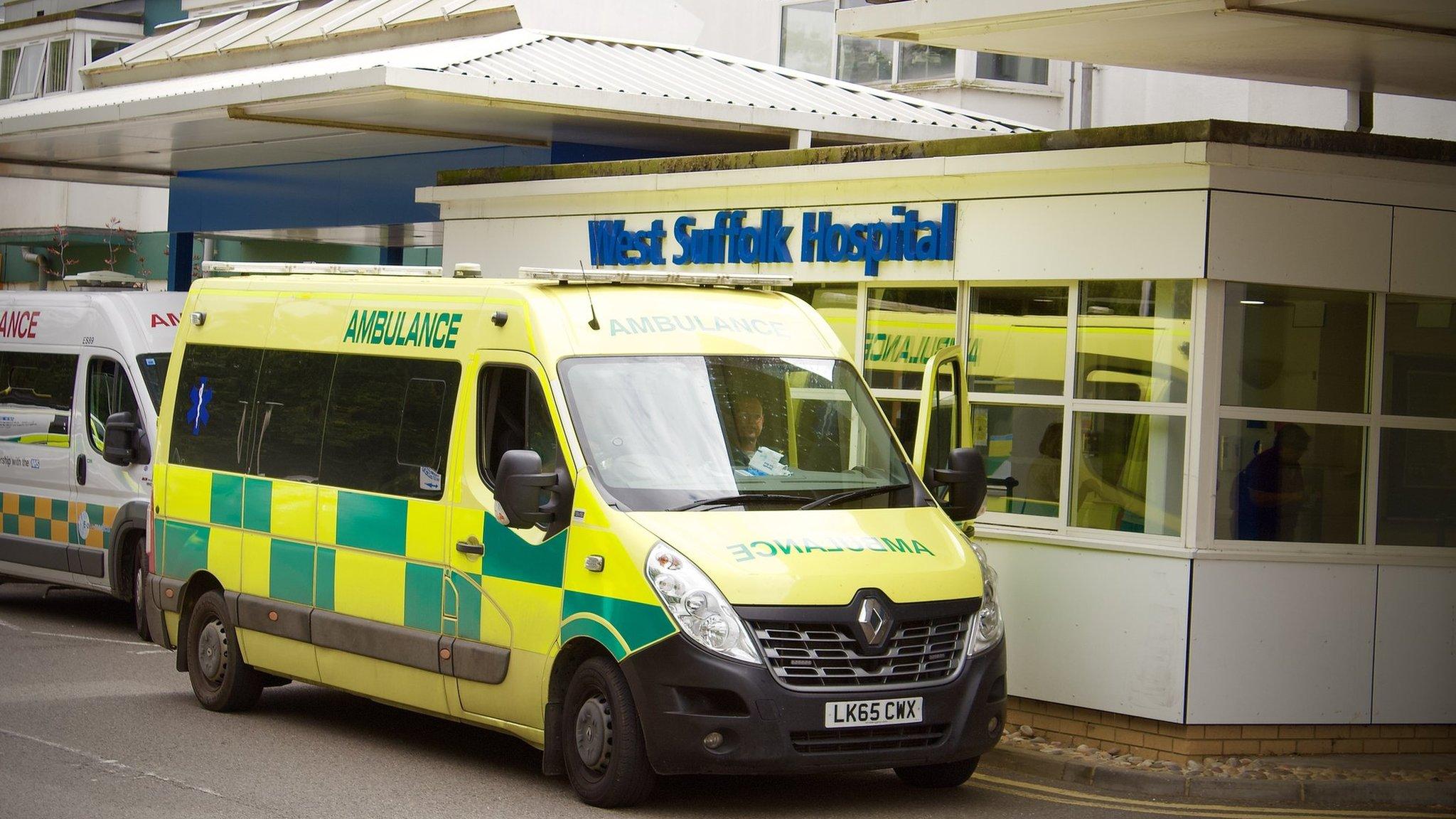Review completed into hospitals at risk of collapse
- Published
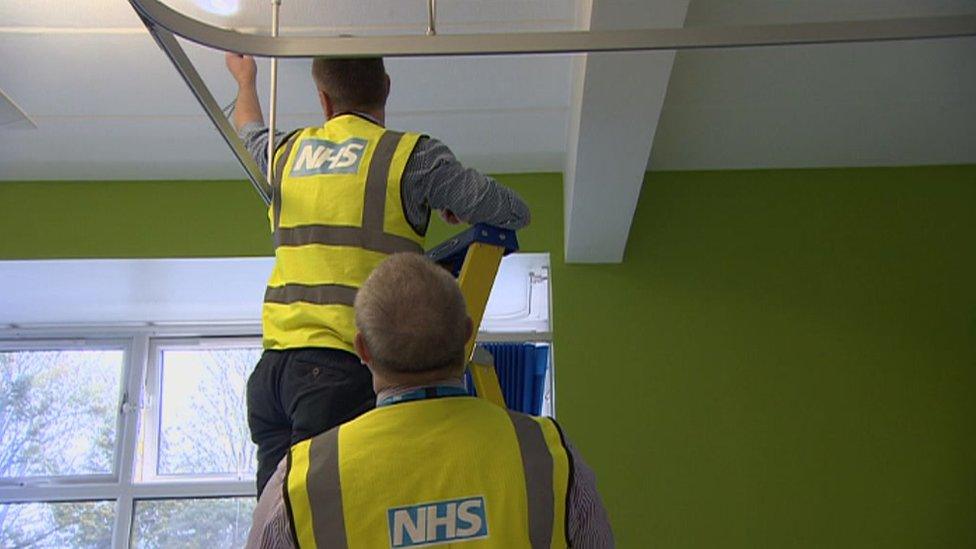
The NHS buildings which have reinforced autoclaved aerated concrete have to be regularly inspected
The government has completed a review into the future of several hospitals which are in danger of collapse.
It concerns NHS buildings which have used reinforced autoclaved aerated concrete that had deteriorated since the sites were constructed.
That includes the Queen Elizabeth Hospital in King's Lynn, Norfolk, which has 1,500 props keeping the roof up.
Saffron Cordery, from NHS Providers, which represents hospitals, said the NHS needed "wide-ranging investment".
The problems relate to the uncertainty over the structural integrity of reinforced autoclaved aerated concrete (RAAC) planks.
Between the 1960s and 1980s they were used in roofs, floors and walls of NHS buildings and schools and had an expected lifespan of 30 years.
More than £100m was being spent this financial year on safety measures across the affected sites.
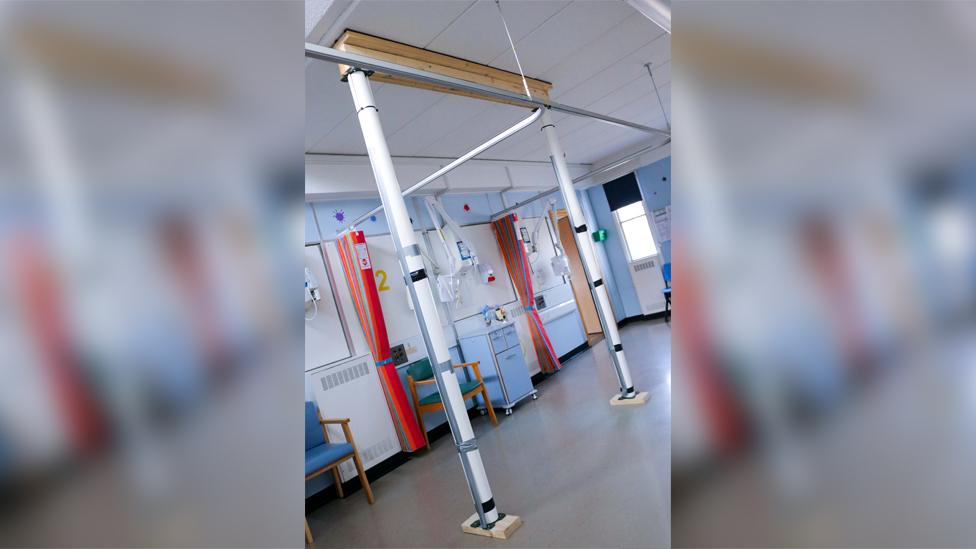
There are many props and temporary supports in place across the Queen Elizabeth Hospital
The Department of Health and Social Care (DHSC) commissioned a construction company to assess the buildings most at risk, as first reported in the Sunday Times, external.
Others hospital include Hinchingbrooke Hospital in Cambridgeshire, Airedale in West Yorkshire, Leighton in Cheshire, and Frimley Park in Surrey.
The review will be kept confidential but looked at the state of these hospitals and whether they needed to be fully rebuilt.
In the short-term, funding would be provided "to mitigate immediate risks", the DHSC said.
In 2020, the prime minister announced that 40 hospitals would be built by 2030 as part of a package worth £3.7bn, with a further eight schemes invited to bid for future funding.
West Suffolk Hospital in Bury St Edmunds and James Paget in Gorleston, Norfolk, both have RAAC but are part of the new hospital programme so were not in the review, the DHSC said.
Mr Cordery, the interim chief executive of NHS Providers said money from the government was needed "to tackle the alarming maintenance backlog" the NHS was facing.
"It is vital trusts get access to the capital they need to replace RAAC planks and address other critical infrastructure risks to ensure patient and staff safety is not compromised," he said.

Find BBC News: East of England on Facebook, external, Instagram, external and Twitter, external. If you have a story suggestion email eastofenglandnews@bbc.co.uk, external
- Published7 June 2022
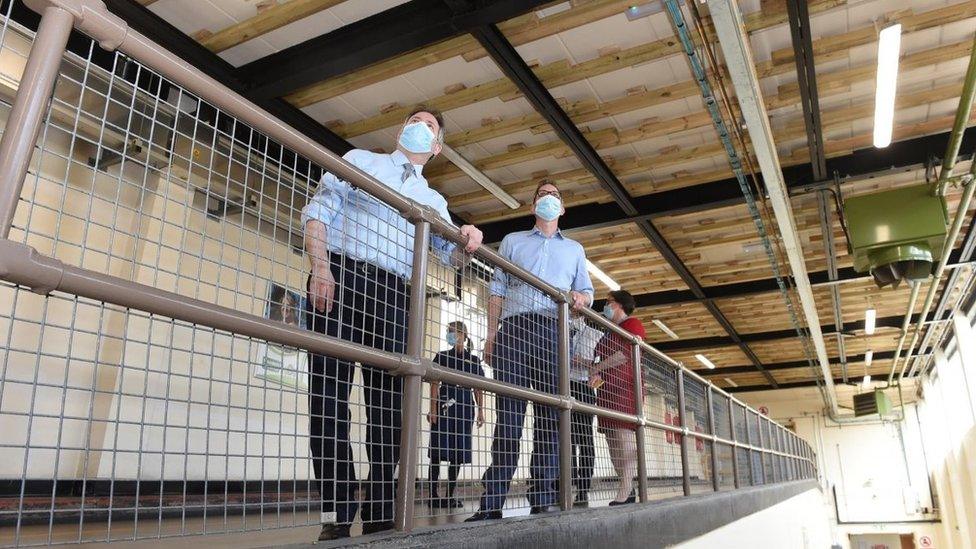
- Published8 April 2022
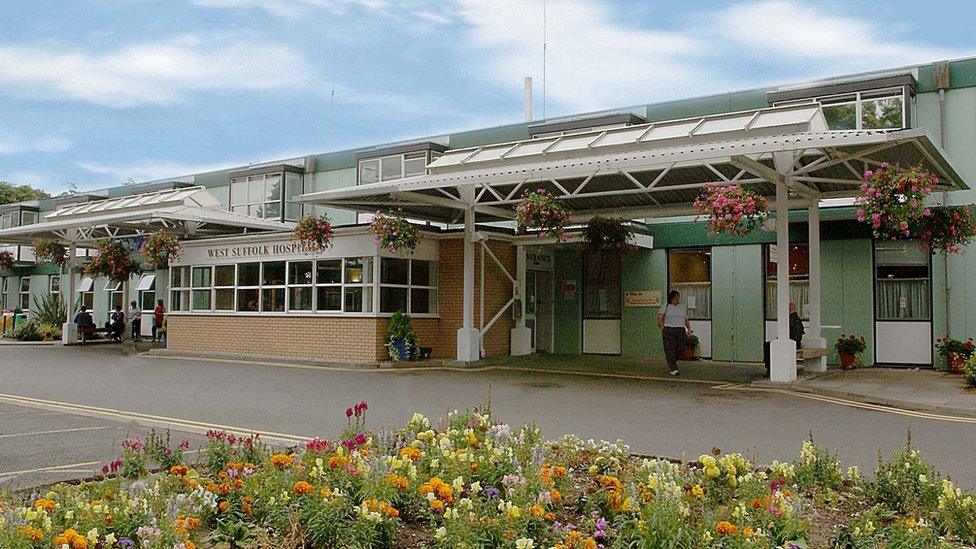
- Published16 August 2021
